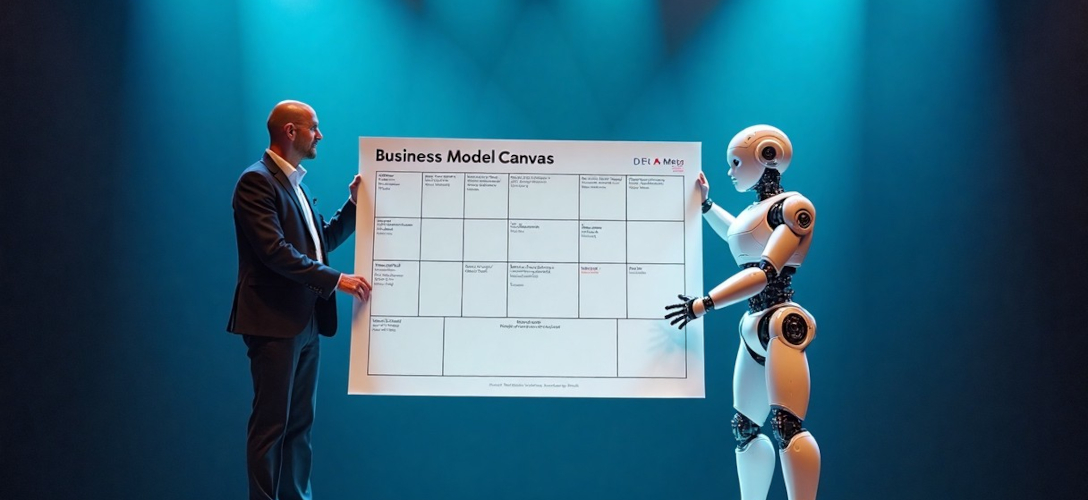
Cut Through AI Hospitality Case Study Noise

Cut Through AI Hospitality Case Study Noise
Introduction
You know the search all too well. You type “AI case studies in [your industry]” into a search engine, hoping for a blueprint, a proven result, a spark of validation for your upcoming project. What you find instead is an ocean of generic listicles—AI-generated articles touting the same superficial “top 10” use cases, devoid of specifics, dates, or named sources. They promise potential but offer no proof.
For an established company investigating its first AI integration, this isn’t just noise; it’s a strategic roadblock. How can you trust a transformation built on hypotheticals?
At System in Motion, we believe mastery is found in the details, not the headlines. So we decided to solve this problem with the very tool causing it: Artificial Intelligence. We used several AI agents in a rigorous test with a single mission: to cut through the hype and uncover dense, detailed, and verifiable case studies that meet the high standards of a discerning business leader.
We choose the hospitality industry as a test, as we have several customers in this industry.
This is how we did it.
Our Contenders and Their Strategies
To find genuine signal in all that noise, we assembled a team AI agents. Our goal wasn’t only to get answers, but to understand how different AI approaches this critical research task. We evaluated them not only on their final output but on their methodology.
Here’s a breakdown of our contenders and the distinct strategies they employed:
-
Anygen: The Strategic Investigator Anygen immediately stood out for its consultative approach. It didn’t just search; it first asked clarifying questions to refine its mission. Its strategy involved targeting premium industry sources like Skift.com and digging into recent press releases. The result was a ranked list rich with executive quotes, specific technologies, and measurable outcomes, complete with a synthesized analysis of industry trends.
-
Manus: The Methodical Analyst Manus took a data-driven, academic approach. It created a clear scoring table, ranking each case study against our four strict criteria. Its strength was in precision, crafting queries that included specific company names to pull detailed reports from established industry publications like Hospitality Net and Nation’s Restaurant News. It was excellent for validation and quick scanning, providing a clear, fact-based snapshot.
-
Kimi Agent (OK Computer): The Presentation Specialist Kimi’s strength was in synthesis and formatting, automatically generating a clean, professional presentation deck. However, it initially failed a critical test of trust: providing verifiable source links. Once prompted, it pretended to add them, but failed to do so. It demonstrates the need for human oversight to ensure accountability.
-
DeepSeek + Web: The Overly Cautious DeepSeek took an overly literal and cautious approach. It strictly relied on the immediate context of its browsing session and, failing to find the exact information within that limited scope, defaulted to the least helpful answer: recommending that we do the manual research ourselves. It effectively abdicated the task, showing a lack of initiative and strategic thinking.
-
Our n8n Workflow: The Tailored Scout We took a different, more holistic approach. Using our custom n8n automation, we deployed broader, exploratory search terms like “How the Hospitality industry is implementing AI.” This cast a wider net, capturing a variety of insights from vendor blogs, industry analyses, and tech portals. The value came from our experts then synthesizing these findings into a comprehensive, narrative-driven summary—a human-led, AI-powered methodology.
This test revealed a core truth: the ability to find valuable information is less about the AI itself and more about the strategy and prompts behind it. The most effective agents acted as intelligent partners, while the least effective were merely sophisticated search bars. This distinction is at the heart of achieving true AI mastery.
The Outcomes – A Comparative Analysis of Results
The true measure of an AI’s utility for this task lay not in its methodology alone, but in the quality, accuracy, and depth of its final output. The divergence in results was significant, highlighting a clear spectrum of capability in delivering actionable business intelligence.
We evaluated the outputs against our four strict criteria for a valuable case study: Specificity, Recency, Authority, and Substance.
The following table provides a clear, at-a-glance comparison of how each solution performed:
| Agent | Met All 4 Criteria? | Provided Sources? | Included Executive Quotes? | Synthesized Analysis? | Key Strength |
|---|---|---|---|---|---|
| Anygen | ✅ Yes | ✅ Verifiable | ✅ Yes | ✅ Yes | Depth & Strategic Insight |
| Manus | ✅ Mostly | ✅ Verifiable | ✅ Yes | ❌ Limited | Data-Driven Clarity |
| Kimi Agent | ⚠️ Partial | ❌ Missing | ⚠️ Some | ✅ Yes | Presentation |
| DeepSeek | ❌ No | ❌ N/A | ❌ No | ❌ No | N/A |
| n8n Workflow | ✅ Yes | ✅ Verifiable | ⚠️ Some | ✅ Yes | Comprehensive Scope |
A Closer Look at the Results:
-
Anygen delivered the most authoritative output. Each case study was recent, named a company and a key executive, and detailed a specific AI application with measurable outcomes. Crucially, it concluded with a valuable synthesis, analyzing the strategic trends these cases represented for the hospitality sector. This aligns perfectly with our value of providing dense, detailed, and valuable content.
-
Manus provided a highly structured and easily scannable output. Its table format was excellent for quick validation, and it successfully retrieved recent examples from major industry publications. However, its analysis was more limited, presenting the facts without the deeper strategic layer that business leaders require for decision-making.
-
Kimi Agent initially presented a well-formatted summary but demonstrated a critical flaw: it could not provide verifiable source links upon request. This undermines trust and highlights the absolute necessity of human verification, a cornerstone of our expert guidance.
-
DeepSeek was unable to complete the task as defined. Its output consisted of a recommendation to conduct manual research, failing to leverage its web search capability effectively. This result underscores that access to technology alone is insufficient without the right strategy.
-
Our n8n Workflow succeeded by casting a wider net. While some individual sources lacked a named executive, the overall synthesis created a comprehensive landscape view of how AI is being applied across marketing, operations, and guest experience. This tailored, human-curated approach exemplifies how we build understanding for established businesses.
The conclusion was clear: the most effective solutions were those that combined advanced retrieval with analytical synthesis, delivering not just data, but insight. This distinction is critical for companies seeking to move from exploration to execution.
Our Framework for Reliable AI-Powered Research
The variance in results from these AI agents underscores a critical lesson: success is dictated by strategy, not just the tool. The ability to source authentic, actionable intelligence requires a disciplined framework. Based on our analysis, we have defined a repeatable process to ensure your research cuts through the noise and delivers trustworthy results.
The Four-Step Framework for AI-Powered Search
-
Define the ‘Anti-Prompt’: Clarity Through Exclusion The first step is not to define what you want, but what you must avoid. This establishes a foundation of quality from the outset.
- Action: Before searching, explicitly exclude generic and low-value content. For example:
...exclude any articles with the words "guide," "top 10," or "listicle" in the title. Avoid theoretical use cases and focus on implemented solutions.
- Action: Before searching, explicitly exclude generic and low-value content. For example:
-
Mandate Specificity: The Non-Negotiable Criteria Compel the AI to adhere to a higher standard of evidence. A valuable case study is built on specific, verifiable facts.
- Action: Structure your prompt to require:
For each example, you MUST provide: the company name, the publishing date, the name and title of a quoted executive, and a specific, measurable outcome or KPI.
- Action: Structure your prompt to require:
-
Curate the Sources: Guide the Investigation The open web is full of bias and AI-generated content. Direct the AI to prioritize information from authoritative and reputable venues.
- Action: Instruct the agent to prioritize results from:
industry-specific publications (e.g., Skift, Hospitality Net), reputable business journals, official company press releases, and leading consulting firms.
- Action: Instruct the agent to prioritize results from:
-
Synthesize and Verify: The Human Expert’s Role The initial output is a draft, not a final report. True mastery requires human expertise to synthesize findings into a coherent narrative and verify their authenticity.
- Action: Use the AI’s compilation as a starting point. Then, analyze the trends: Where is AI delivering the most ROI? What challenges are companies facing? Finally, verify the primary sources to ensure accuracy and build trust.
This framework transforms a simple query into a strategic research initiative. We don’t just help you implement AI; we equip you with the mastery to leverage it as a strategic asset, ensuring your integration is informed by proven success stories, not just potential.
Consensus in the Noise – Recurring Business Cases
While the methodologies and depth of reporting varied significantly, a clear signal emerged from our multi-agent analysis: several specific business cases were consistently identified as high-impact by multiple, independent AI systems. This consensus points to proven, strategic applications of AI that are delivering measurable value across the hospitality sector.
Here are the key business cases referenced by more than one AI agent in our study:
1. AI-Powered Food Waste Reduction (Winnow Systems)
- Referenced by: Anygen, Kimi K2 + Web
- Business Case Description: Hotels and restaurants deploy AI-powered camera systems (notably from Winnow) above waste bins to automatically track and categorize discarded food. The AI provides detailed analytics on waste patterns, enabling kitchens to adjust purchasing, prep, and portion sizes. This directly reduces food costs and aligns with sustainability goals.
- Cited Examples: Conrad Shanghai (45% reduction), Marriott UK & Nordics (50%+ reduction), Mandarin Oriental (global rollout).
2. AI Chatbots & Virtual Concierge for Guest Services
- Referenced by: Manus, n8n Workflow, Kimi Agent
- Business Case Description: Implementing AI-driven chatbots on websites, apps, and in-room devices to handle a high volume of guest inquiries, requests, and bookings. This provides 24/7 support, improves response times, frees up staff for complex issues, and can drive upsell opportunities.
- Cited Examples: IHG’s “IHG Assistant,” Guesty’s “ReplyAI” for vacation rentals, WestCord Hotels’ WhatsApp concierge.
3. AI for Operational Efficiency & Labor Management
- Referenced by: Manus, Anygen, n8n Workflow
- Business Case Description: Using AI algorithms to forecast demand and optimize labor scheduling. This ensures restaurants and hotels are staffed appropriately for predicted volume, controlling costs while maintaining service quality. This also extends to AI-assisted inventory counting.
- Cited Examples: Long John Silver’s labor forecasting tool, Starbucks’ AI inventory counting system, Yum China’s “Q-Smart” voice assistant for managers.
4. Personalized Guest Marketing & Experience
- Referenced by: n8n Workflow, Manus
- Business Case Description: Leveraging AI to analyze guest data from loyalty programs and past stays to deliver hyper-personalized marketing communications, pre-stay offers, and in-stay recommendations. This increases guest loyalty, direct bookings, and revenue per guest.
- Cited Examples: Panera Bread’s personalized journey for its 60M loyalty members, The Great Greek’s analysis of digital order data.
Why This Consensus Matters:
This overlap is not coincidental. It highlights a maturation of AI in hospitality, moving from experimental pilots to scalable solutions addressing universal industry challenges: cost control, revenue optimization, and guest satisfaction. For a management team evaluating AI, these recurring cases represent a lower-risk starting point with a well-documented path to ROI. They are the foundational pillars upon which a successful AI strategy is built.
Conclusion: From Insight to Implementation
Our experiment reveals a clear divide. On one side exists a sea of AI-generated hype and generic potential. On the other lies a smaller, more valuable shore of verified results, strategic insights, and actionable data. For an established hotel group, navigating this divide is the difference between a successful transformation and a costly misstep. Finding a case study is the first step; understanding how to adapt its lessons to your unique operations, brand, and guests is where true mastery begins.
This journey from insight to implementation requires more than just tools, it requires a new layer of expertise within your leadership team. It demands a confident understanding of how to leverage AI to enhance every facet of your operation, from the back office to the guest journey.
Master the Future of Hospitality
Equip your leadership team with the strategic skills to not just use AI, but to wield it with precision.
Our Hospitality AI Leadership Training is specifically designed for hotel management professionals like you. We move beyond theory to provide the practical, dense, and valuable knowledge you need to:
- Improve Guest Experience by deploying AI for hyper-personalization and predictive service.
- Boost Productivity across operations, from dynamic staffing and inventory management to automated processes.
- Elevate Quality in all communications, ensuring consistent, on-brand messaging that resonates with guests.
- Drive Revenue through intelligent pricing, targeted marketing, and enhanced service offerings.
Stop searching for answers and start building them.
👉 Discover Our Hospitality AI Leadership Training
Transform your potential into proven success.
We are Here to Empower
At System in Motion, we are on a mission to empower as many knowledge workers as possible. To start or continue your GenAI journey.
You should also read


AI Data Scientist: Success Isn't Guaranteed
Article 8 minutes readLet's start and accelerate your digitalization
One step at a time, we can start your AI journey today, by building the foundation of your future performance.
Book a Training